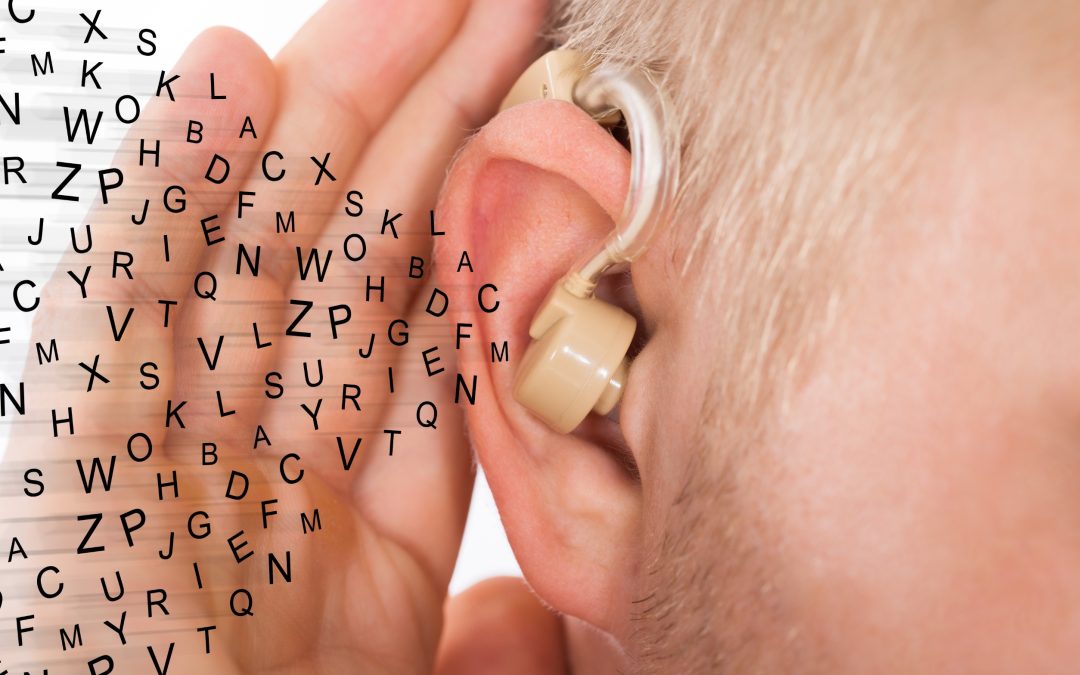When it comes to language development, hearing plays an important role. A person who cannot hear clearly or at all may have trouble learning and understanding language. People with a hearing impairment can experience difficulties in building vocabulary, detecting distinct sounds, and conversing fluently in both verbal and written forms of communication.
So what challenges do those living with a hearing impairment face when developing their ability to understand and use language? In this blog post, we will explore the impact that hearing impairment has on language acquisition and development.
How hearing impairment can affect language development
Hearing is fundamental to language development, allowing children to differentiate sounds, recognise words, and understand their meanings. However, when hearing impairment is present, it can severely impact a child’s ability to develop language skills.
Children with hearing difficulties often struggle to hear and process sounds correctly, leading to difficulty in speech and language acquisition. Language gaps can begin to widen, making it harder for them to keep up with their peers.
Early intervention, such as the provision of hearing aids or cochlear implants, can improve a child’s chances of developing language skills, but ongoing support, such as speech therapy and regular hearing assessments, is critical to ensure language development progress.
Impact of hearing loss on speech and communication skills
Hearing loss can have a profound impact on speech and communication skills, affecting not just the individual with hearing loss but also those around them.
For someone with hearing loss, keeping up with conversations may prove challenging, leading to feelings of isolation and frustration. Moreover, hearing loss can make it difficult to discern different speech sounds and tones, leading to unclear and distorted speech.
It can lead to misunderstandings, mistranslations, and misinterpretations, which can cause further difficulties in communication. Fortunately, there are various strategies and assistive devices available to help those with hearing loss communicate effectively.
Factors that influence the severity of hearing impairment on language processing
Hearing impairment is a condition that impacts many people worldwide. However, not all cases of hearing impairments are equal. Many factors can influence the severity of such impairment. One such factor is the location of the hearing loss in the ear or ears.
Whether the hearing loss is temporary or permanent can also play a significant role. In addition, age at onset, degree of loss, and individual differences in the cognitive, linguistic, and social development of the individual are other factors that can impact the severity of hearing impairment on language processing.
Understanding these variables can help healthcare providers and educators better support the unique language learning needs of those with hearing impairments.
How early detection of hearing impairment and treatment can help improve language outcomes
Hearing is an integral part of our ability to communicate, and the impact of hearing loss can be far-reaching. Studies have shown that children with hearing impairment are vulnerable to delays in language, cognitive, and social development.
If left untreated, it can lead to severe consequences, affecting not only an individual’s ability to communicate but also their academic performance and future job prospects. Early detection and intervention of hearing loss are critical in improving language outcomes and preventing future developmental delays.
Treatment can include hearing aids, cochlear implants, and speech therapy, which all work towards enhancing the child’s communication skills, improving their self-esteem, and helping them reach their full potential. By addressing hearing loss early on, we can ensure that children have the most favourable outcomes for their language development and overall well-being.
Strategies for parents to help their children with hearing impairments develop stronger language skills
As parents, it’s natural to want your child to succeed in every way possible. For parents of children with hearing impairments, helping them develop strong language skills is crucial to their success. Communication is essential, but it can often be challenging for children with hearing impairments to fully express themselves.
Fortunately, there are strategies that parents can use to help their children improve their language abilities. One such approach is incorporating play into language practice. Engaging in fun activities like reading, singing, and even playing games can be an excellent way to introduce new words and phrases and make learning enjoyable.
Additionally, being patient and offering plenty of encouragement and support can go a long way in helping children with hearing impairments overcome language hurdles. With the right approach and a little effort, parents can help their children thrive and reach their full potential.
About Us
At Carlisle Hearing Center, we are dedicated to providing quality care toward improving your hearing health and quality of life. Hearing-related issues can often make you feel alone, but with our technologically advanced, affordable hearing solutions and top-notch advice, you can confidently live your life, assured that we are always looking out for you and your loved ones! Contact us today to schedule your free hearing test, or visit our website to learn more about our hearing solutions.

